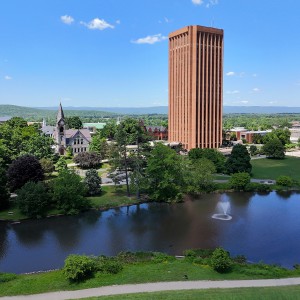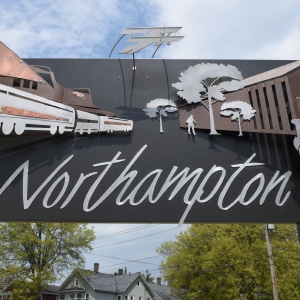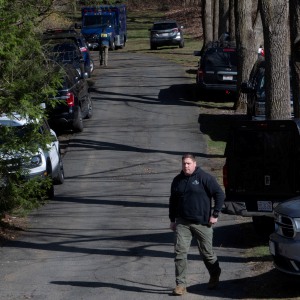Mediation at the core of training to help veterans
| Published: 05-05-2017 10:51 PM |
NORTHAMPTON — Far from foreign battlefields, David Felty is learning to help military veterans resolve conflicts of a different sort.
A five week training session at the World War II Club on Conz Street is helping the Southampton resident and trial court peer specialist to better understand the importance of issues facing some veterans, such as the need for childcare or visitation privileges.
“It’s been an extremely eye-opening experience to participate in this course,” Felty said. He works daily with military veterans as part of a jail diversion program in the four western counties.
Felty said he recognizes a need for mediation when conflicts arise between veterans and their families.
“This will help with my work tremendously,” he said. “I couldn’t have asked for better training.”
Julie Perry of Westfield is a veteran mentor at the Western Massachusetts Veterans Treatment Court in Holyoke, a chaplain for young marines in Holyoke and operates the nonprofit Heaven on My Earth that serves veterans.
“To have training more advanced than what I’ve had in some of the things I’ve done means being able to resolve conflicts and promote world peace,” Perry said.
Felty and Perry were among more than 20 participants, all of whom serve veterans in various capacities, to take part in the latest 35-hour course called Veterans Mediation Training, for which they received their certificates of completion Friday. Started a decade ago by the Orange-based Quabbin Mediation, the training provides information that can be used to assist veterans in resolving health care issues, mending personal and professional relationships and securing and keeping housing and jobs.
Article continues after...
Yesterday's Most Read Articles
Steven Connor, the veterans agent for Northampton and Amherst, was in the first mediation class a decade ago.
“You’re basically trying to help a veteran readjust to the community, and these skills are helping you to do that,” Connor said.
Because veterans can get accustomed to the chain of command in the military, Connor said he has discovered that without mediation, many can have difficulty in accessing Social Security or Supplemental Nutrition Assistance Program benefits, and then express frustration when they are denied.
“A lot of the skills you learn in mediation are about learning what they are saying and giving information back to them in a nonjudgmental way,” Connor said.
Quabbin Mediation Executive Director Sharon Tracy said she founded the program to fill a critical gap between military and civilians. Mediation, she said, creates a space for people in conflict to find solutions. Courts, in particular, Tracy added, find it a useful process since agreements can be stronger than those imposed by a judge.
One of those present for giving out the certificates was Laurie MacLeod, the first justice at the veterans treatment court. MacLeod endorses the training and the mediation that can result from it.
“We’re getting them back on track. We’re getting them support,” MacLeod said.
Also on hand were legislators who have endorsed state financial support for three years that is allowing statewide expansion of the mediation program, beginning next week in the Boston area
“Massachusetts has proven it leads the way in how it treats veterans,” said State Rep. Susannah Whipps, R-Athol.
State Sen. Anne Gobi, D-Spencer, said she saw the success of the training in the Pioneer Valley and wanted to bring the program to all corners of the state so more veterans can help other veterans.
“We’ve found veterans don’t like to ask for help, but are more likely to do so from other veterans,” Gobi said.
Scott Merzbach can be reached at smerzbach@gazettenet.com.
]]>






 UMass faculty calls on land grant universities to join in fight against Trump administration; McGovern, AG also weigh in
UMass faculty calls on land grant universities to join in fight against Trump administration; McGovern, AG also weigh in  Area briefs: Haydenville church Easter Soup & Bake Sale; Frontier Community Access editing drop in hours; Northampton Democratic City Committee to caucus; Traffic advisory for DAR State Forest
Area briefs: Haydenville church Easter Soup & Bake Sale; Frontier Community Access editing drop in hours; Northampton Democratic City Committee to caucus; Traffic advisory for DAR State Forest Hadley man detained after chemicals go missing
Hadley man detained after chemicals go missing Community printing hub takes shape in Easthampton
Community printing hub takes shape in Easthampton
